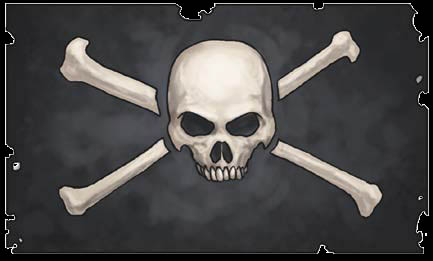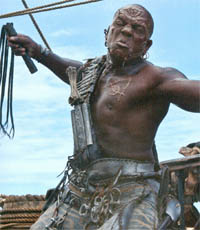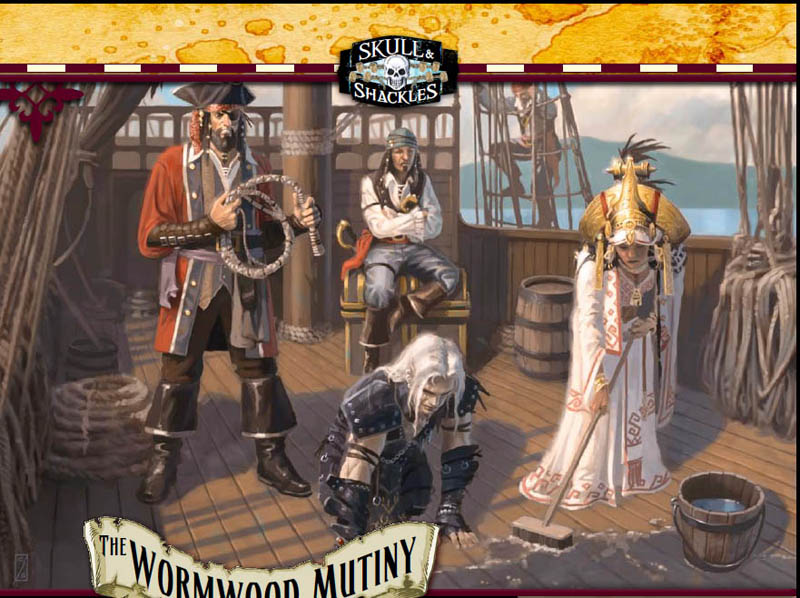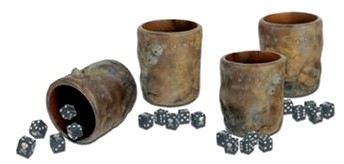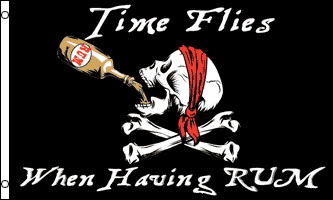 RUM RATION
RUM RATION
Aboard many ships, half a pint of rum is distributed to each crew member at dusk. The rum is staggeringly strong, and is often watered down to make grog. Characters drinking the ration are affected as though they had taken an addictive drug (see page 236 of the Game Mastery Guide for details on drugs and addiction). The rum ration is doled out more to keep the crew sated and docile than for recreation. The penalty for selling or spilling the ration is three lashes, or three lashes from a cat-o'-nine-tails for a second offense*. Deliberately tipping away rum on board a crowded ship without being seen requires a DC 10 Stealth or Slight of Hand check. While on merchant or navy vessels rum rations are strictly limited, on pirate ships, crew members can often request more rum if they please.
Shackles Rum Ration
Type ingested; Addiction minor, Fortitude DC 5
Price 2 sp
Effect variable; +1d4 alchemical bonus to Charisma and fatigued for 1d8 hours
Damage 1d3 Con
* The book says this is worth 6 lashes, but I have ruled it only 3.
Roles Aboard a Pirate Ship
A pirate crew is more than just a mob of cutthroats on a ship; all crew members have specific roles and responsibilities, with harsh punishments being meted out upon those who shirk their duties. Listed here are some of the standard roles aboard a typical pirate ship. Not all of these roles might be represented on every vessel, but such details can help players understand their characters' daily duties.
Boatswain: The boatswain, or bosun (pronounced “bosun†either way), is responsible for the upper deck of the vessel and above. This makes the boatswain accountable for all rope, rigging, anchors, and sails. At the start of the day, the boatswain and those under her weigh anchor, raise the sails and report on the general condition of the ship's deck to the captain. As she oversees many of the ship's basic daily labors, the boatswain is often responsible for keeping discipline and dispensing punishment.
Cabin Boy/Girl: Servant to the captain and other officers, this low-ranking and typically young crew member assists other sailors in their duties and runs various errands across the ship, requiring him or her to gain a measure of understanding of almost all the ship's roles.
Captain: The ultimate authority on any ship, his word is law to all on board. The captain chooses where to sail, what to plunder, and who fills the other stations aboard the vessel, among many other command decisions. Leadership often proves perilous, however, as a captain is, above all, meant to secure success for his ship and crew. Failing to do so increases the threat of mutiny.
Carpenter/Surgeon: No matter what enchantments or alchemical unguents augment a pirate ship, its heart and bones are still wood. This simple fact makes the carpenter one of the most important positions aboard any vessel. Carpenters are chiefly responsible for maintaining the ship below the deck, finding and plugging leaks, repairing damage, and replacing masts and yards. As the crew member most skilled with the saw, the carpenter typically serves as a ship's surgeon as well - bones cut just as easily as timbers.
Cook: While the quartermaster normally allocates the rations, the cook and his apprentices make and distribute meals to the crew. Although some better-outfitted vessels employ skilled cooks to attend to the captain and the officers, many cooks are drawn from crew members who have suffered crippling injuries, allowing them to still serve even after such trauma.
Cooper: Wooden barrels were very valuable, as they were the best way to store food, water and other necessities of life at sea. Every ship needed a cooper, or a man skilled in making and maintaining barrels. Existing storage barrels had to be inspected regularly. Empty barrels were broken up to make space on small ships: the cooper would quickly put them back together if they stopped to take on food and water.
Master-at-Arms: Concerned with the security of the ship, the fitness of the crew, and the dispensing of justice, the master-at-arms typically is one of the most feared and dreaded of a ship's officers.
Master Gunner: The master gunner is in charge of all shipboard artillery, ensuring moisture and rust don't ruin the weapons and that the crew knows how to use them. On board ships with firearms, the master gunner maintains the vessel's cannons, firearms, and powder supplies; on ships without such weapons, she maintains the ballistas, catapults, and so on.
Quartermaster: The quartermaster oversees the supplies and items stored aboard the ship. She maintains the supplies of food and weaponry, oversees the disbursement of food to the cook, and doles out the rum ration to the crew.
Rigger: Riggers work the rigging and unfurl the sails. In battle, next to that of a boarding party, the riggers' job is one of the most dangerous, as they pull enemy vessels near enough to board.
Swab: Any sailor who mops the decks. Also used as slang for any low-ranking or unskilled crew member.
 There are many a good resources for this game, starting with the books by Paizo. You can find these in the Imperial Library or digital purchase from Paizo.
There are many a good resources for this game, starting with the books by Paizo. You can find these in the Imperial Library or digital purchase from Paizo.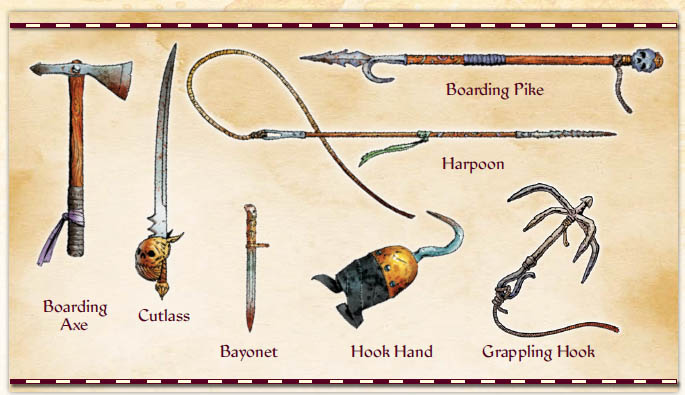 BOOKS
BOOKS
